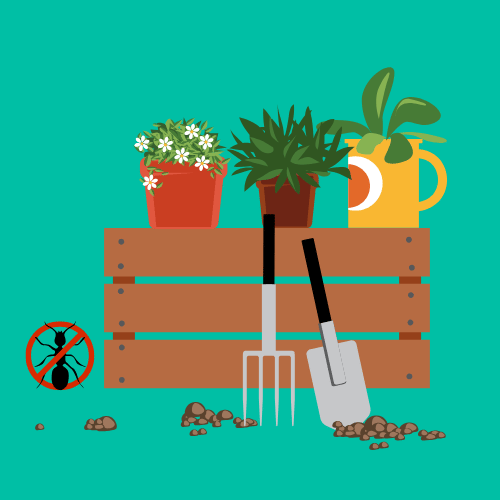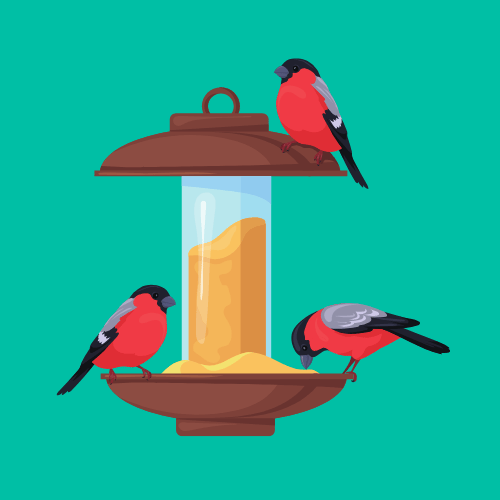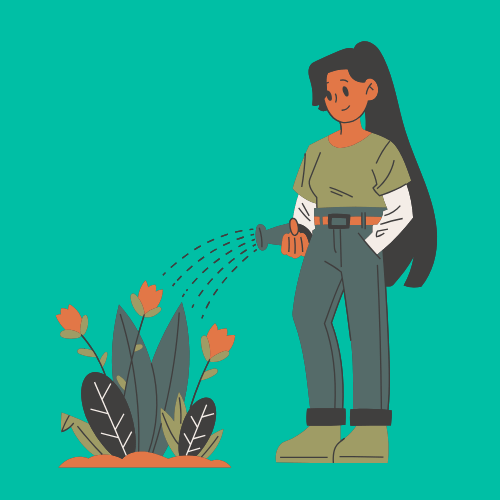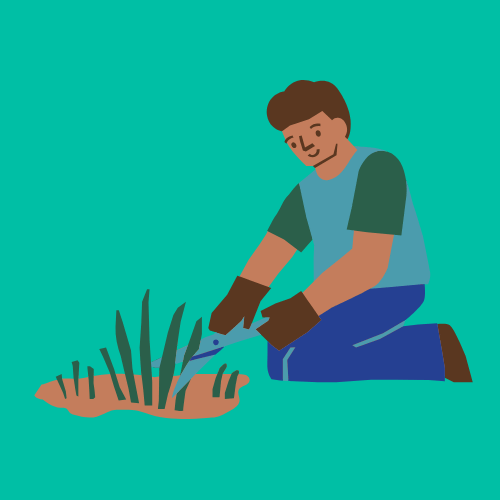Pest Control for Your Winter Garden [Eco-Friendly Approach]

Winter can be a surprising ally for gardeners. The frosty chill may seem harsh, but it can help you combat pests hiding in your garden.
By working with nature and employing a few smart strategies, you can turn winter into your garden’s ally.
Here’s how to protect your winter garden from pests while fostering a thriving ecosystem for spring.
Get our Gardening Buddy and find veggies that fit your conditions best.
You Can Grow It!
Leverage Frost to Expose and Eliminate Pests
Frost isn’t just for creating magical landscapes—it’s a pest control powerhouse. Many bugs hibernate beneath soil layers, mulch, and leaf litter during winter. By exposing them to the cold, you can give your garden a fresh start.
- Rake and Turn the Soil: Rake up fallen leaves and turn the top few inches of soil around fruit trees and bushes. This exposes overwintering grubs to the freezing temperatures, ensuring they can’t survive to attack your plants in spring.
- Manage Mulches Wisely: Thick mulches provide a cozy hiding spot for pests. During the coldest weeks, peel back the mulch to let frost penetrate the soil. However, keep some mulch over root vegetables like carrots and parsnips to make harvesting easier.
Balance is key: expose soil for three to four weeks during the deepest cold, then cover it back to retain nutrients and protect against erosion.

Invite Birds for Natural Pest Control
Birds are your garden’s winter warriors. By exposing pests through soil turning, you create an irresistible buffet for insect-eating birds like robins, wrens, and blackbirds.
- Set Up Bird Feeders: Supplemental feeding keeps birds in your garden, helping them through winter while boosting their pest-hunting efforts. Place feeders near areas where you’ve turned the soil to attract hungry beaks to pest hotspots.
- Remove Netting from Fruit Cages: Temporarily take down protective netting to give birds access to pests hiding in and around your fruit bushes and trees. If you keep chickens, let them roam garden beds—they’re natural pest-seeking machines!
- Monitor for Potential Damage: Birds like bullfinches may feed on young fruit buds. If you notice significant bud damage, reapply netting to safeguard your plants.

Use Winter Washes to Target Overwintering Pests
Winter washes are a game-changer for managing pests on fruit trees and bushes. These plant or fish oil-based sprays work by suffocating pests like mites and aphids, which cling to branches during winter.
- Apply Strategically: Wait for a calm, dry day to ensure effective application. Use a pump sprayer to cover all branches, focusing on crevices where pests hide. While covering larger trees can be challenging, even partial treatment can significantly reduce pest populations.
By eliminating overwintering pests, you’ll also reduce the risk of plant viruses, ensuring healthier growth in the coming seasons.

Weed Out Pests’ Winter Hideouts
Weeds are a favorite refuge for pests during winter. Clearing them out prevents bugs from thriving and sets the stage for a pest-free growing season.
- Tidy Selectively: Focus on removing annual and invasive weeds like bindweed while leaving beneficial plants like nettles and calendula. These attract helpful predators like ladybugs and lacewings come spring.
A balanced approach ensures you protect the good bugs while disrupting pest habitats.

Eco-Friendly Pest Control with Smart Tools
Tools like the Pocket Hose can make winter pest control easier while keeping your gardening practices sustainable.
- Spot Treat with Precision: Use the adjustable nozzle to apply organic sprays, such as neem oil or garlic solutions, directly to problem areas. This targeted approach minimizes impact on beneficial insects.
- Hydrate Strategically: The Pocket Hose’s lightweight design simplifies watering in winter, ensuring healthy soil and plants without overdoing it. Healthy plants are less vulnerable to pests.
- Prepare Soil for Mulching: Before reapplying mulch, use the hose to moisten the soil. This helps maintain moisture levels and supports soil microbes during the colder months.

The Power of Organic Pest Control for Your Winter Garden
Eco-friendly methods like companion planting, physical barriers, and natural repellents are essential for sustainable winter gardening. Combined with practical strategies like exposing pests to frost, welcoming birds, and using winter washes, these approaches create a thriving, pest-resistant garden.
Winter isn’t just a time for your garden to rest—it’s an opportunity to reset. By actively managing pests during the colder months, you’ll set the stage for a healthier, more productive garden in spring. So grab your rake, invite some birds, and let nature (with a little help from you) do its work!
Get our Gardening Buddy and find veggies that fit your conditions best.
You Can Grow It!
Partners and Sponsors
We are forever grateful to our partners and sponsors. Send an email to team @ strongecho.com and let’s see how we can grow each other’s impact!





